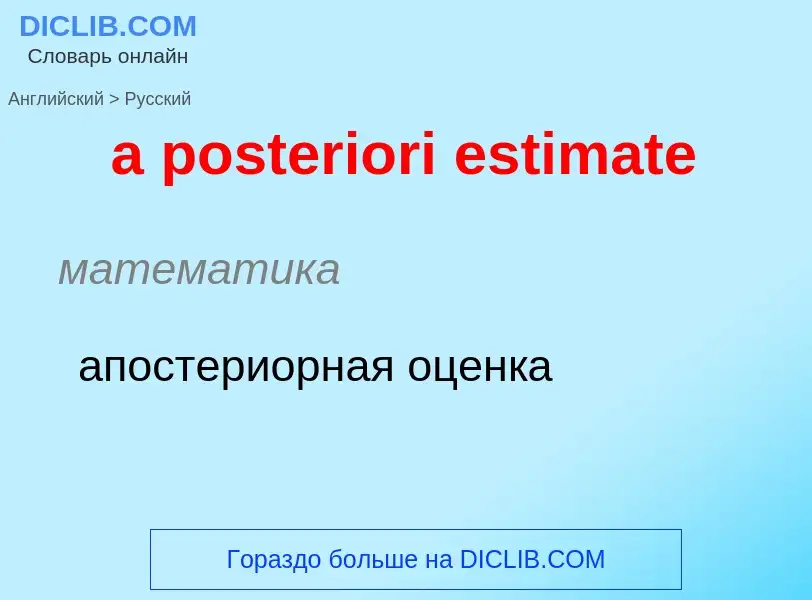Перевод и анализ слов искусственным интеллектом
На этой странице Вы можете получить подробный анализ слова или словосочетания, произведенный с помощью лучшей на сегодняшний день технологии искусственного интеллекта:
- как употребляется слово
- частота употребления
- используется оно чаще в устной или письменной речи
- варианты перевода слова
- примеры употребления (несколько фраз с переводом)
- этимология
a posteriori estimate - перевод на русский
математика
апостериорная оценка
a posteriori
Определение
Википедия
The empirical probability, relative frequency, or experimental probability of an event is the ratio of the number of outcomes in which a specified event occurs to the total number of trials, not in a theoretical sample space but in an actual experiment. More generally, empirical probability estimates probabilities from experience and observation.
Given an event A in a sample space, the relative frequency of A is the ratio m/n, m being the number of outcomes in which the event A occurs, and n being the total number of outcomes of the experiment.
In statistical terms, the empirical probability is an estimate or estimator of a probability. In simple cases, where the result of a trial only determines whether or not the specified event has occurred, modelling using a binomial distribution might be appropriate and then the empirical estimate is the maximum likelihood estimate. It is the Bayesian estimate for the same case if certain assumptions are made for the prior distribution of the probability. If a trial yields more information, the empirical probability can be improved on by adopting further assumptions in the form of a statistical model: if such a model is fitted, it can be used to derive an estimate of the probability of the specified event

 a 309.jpg?width=200)
